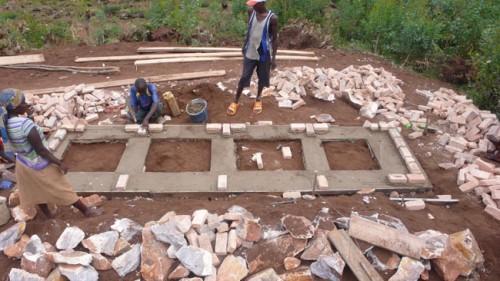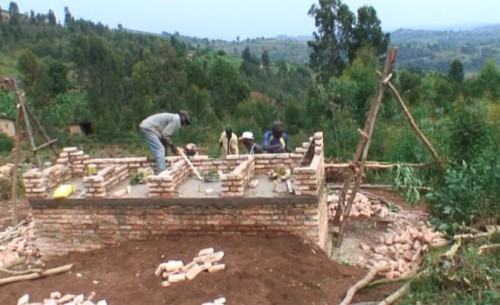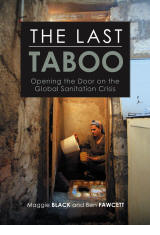Alexandra from Rwanda Village Concept Project (Rwanda VCP) wrote in the other day to inform us of an ecosan toilet that Rwanda VCP built at Muyogoro primary school in Rwanda earlier this year:
“From our work on malaria education in the village of Mpungwe and Muyogoro Primary School, we have noted that the current level of hygiene constitutes a significant danger to public health. We are providing adequate sanitation facilities for children through ecosan toilet construction at their primary schools after seeing that the existing ones can be a danger to the children health and the environment. (…) On Monday, December 17 2007, the construction started at Muyogoro primary school, located in Huye District, Nyakagezi subsector. This construction has been realised in partnership between RVCP, 2 International Participants and BVDA.”

click here to view the complete gallery
The Rwanda Village Concept Project is an international student-run project in Central Africa. This multidisciplinary development project was initiated in 1998 whereas the fieldwork started in 2002. Its aims are to improve the living standards in a Rwandan community by using simple and low cost methods and to develop the capabilties of students in participatory development work.
Dominik of pong.li was invited to cover the construction process with his camera and created these wonderful videos (full playlist on YouTube):
————————
“People in this area just came together to build that public infrastructure…”


 TOPIC: The ‘Great Stink’ of the 21st Century
TOPIC: The ‘Great Stink’ of the 21st Century